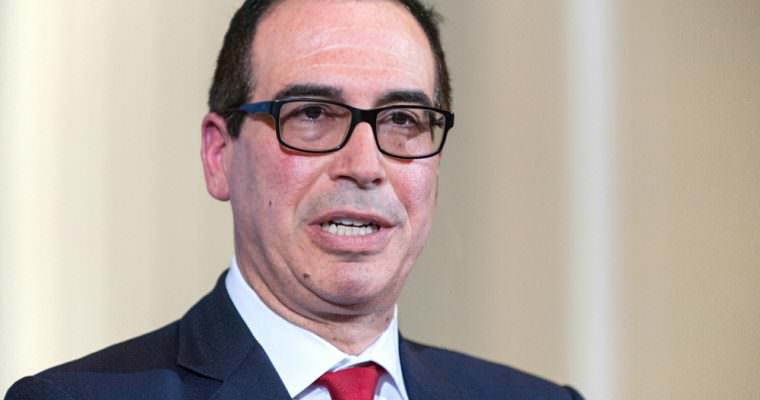
Get Trading Recommendations and Read Analysis on Hacked.com for just $39 per month.
US Treasury Secretary Steven Mnuchin is making headlines again, but not for him and his wife Louise Linton’s James Bond-like lifestyle. This time, Mnuchin has issued a warning that bitcoin has all the makings of the next ‘Swiss Bank Account,’ expressing concerns that are twofold — bitcoin could be treated as an offshore account for money laundering and the rise of the cryptocurrency places consumers in a position to get hurt. This according to Mnuchin’s response to a question about bitcoin at the Economic Club of Washington in recent days accessible on Bloomberg.
In a question about “what the US government should do about” bitcoin, Mnuchin lightened the mood by asking moderator David Rubenstein for full disclosure on bitcoin ownership, to which Rubenstein responded that he “didn’t even know what it is” and that he “missed the boat,” to a round of laughter.
Mnuchin said the US Treasury is “very focused” on cryptocurrencies, pledging to work with the Group of 20 nations (G-2o) to stop digital coins such as bitcoin from rising to the status of a digital version of a Swiss bank account. For instance, Mnuchin pointed to the United States as a model, given the know-your-customer (KYL) protocol for digital-wallet companies that is embedded in US law. This gives the US government a way to track the cryptocurrency trail to combat money laundering and other nefarious activities. But the rule is absent from the rest of the world.
“If you have a wallet to own bitcoins, that company has the same obligation as a bank to know” you as a customer. We can track those activities. The rest of the world doesn’t have that, so one of the things we will be working very closely with the G-20 is making sure that this doesn’t become the Swiss numbered bank account,” said Mnuchin.
The other side of the cryptocurrency coin that Mnuchin worries about is the speculation tied to cryptocurrency trading, which he suggested puts consumers at risk.
Troubleshooting Bitcoin
It’s not just “bad people” that policymakers must contend with. For instance, an underling to Russian President Vladimir Putin reportedly pointed to digital currencies as a way to offset strengthening sanctions from the United States given the anonymous nature of some coins, for instance, Monero and Zcash. But a D.C. lawyer cited in Bloomberg rebuffed those claims as “silly,” suggesting that cryptocurrency would merely complicate, not prevent, the spending trail from being traced.
Meanwhile, don’t expect the Fed to issue a digital dollar to replace physical-world money anytime soon. Policymakers put those rumors to rest, for now, after weighing the plusses and minuses of doing so and determining there was no point.
Featured image from Shutterstock.
Follow us on Telegram.
Advertisement
